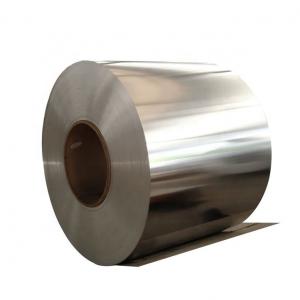

Add to Cart
Product Description:
The 6061 marine grade aluminum coil is a high-quality material specifically designed for marine applications. Engineered with exceptional corrosion resistance, superior strength, and excellent weldability, the 6061 marine grade aluminum coil is ideal for use in various marine environments.
The 6061 marine grade aluminum coil is renowned for its outstanding corrosion resistance, particularly in saltwater and other harsh marine conditions. Its protective oxide layer forms a strong barrier, effectively shielding against corrosion and preventing the degradation of the material over time. This corrosion resistance ensures the durability and longevity of marine structures and components, reducing maintenance needs and enhancing safety.
In addition to its corrosion resistance, the 6061 marine grade aluminum coil offers remarkable strength. It provides high tensile and yield strength, allowing it to withstand the demanding conditions encountered in marine applications. This strength is crucial for marine structures such as boat hulls, decks, and superstructures, ensuring structural integrity and stability.
The 6061 marine grade aluminum coil is also highly weldable, enabling efficient and reliable fabrication and assembly of marine components. It allows for seamless joining and integration of parts, ensuring strong connections and enhancing the overall strength of the marine structure.
Furthermore, the 6061 marine grade aluminum coil is lightweight, contributing to improved fuel efficiency and performance in marine vessels. Its low density allows for reduced weight while maintaining the required strength, resulting in enhanced speed, maneuverability, and overall efficiency.
The 6061 marine grade aluminum coil is versatile and can be used in various marine applications such as boat construction, shipbuilding, offshore structures, and marine equipment. Its excellent combination of corrosion resistance, strength, weldability, and lightweight properties makes it a preferred choice for marine engineers and designers.
Choose the 6061 marine grade aluminum coil for your marine applications and benefit from its exceptional corrosion resistance, superior strength, weldability, and lightweight characteristics. Trust in its reliability and performance to ensure the longevity and durability of your marine structures and components in the challenging marine environment.
Specific Application of 6061 Aluminum Coil in Ship Mast:
The 6061 aluminum coil finds specific application in the construction of ship masts, providing essential support and stability to the sailing vessel. Its high strength, lightweight nature, and excellent corrosion resistance make it an ideal material for this critical component.
The ship mast, typically located vertically at the center of the vessel, serves as a support structure for sails, rigging, and navigation equipment. The 6061 aluminum coil is utilized in the manufacturing of mast sections, ensuring the necessary strength and rigidity while minimizing the weight aloft.
The high strength-to-weight ratio of the 6061 aluminum coil allows for the construction of masts that are both strong and lightweight. This is particularly important for sailing vessels, as reducing weight aloft leads to improved stability, maneuverability, and overall performance.
Additionally, the corrosion resistance of the 6061 aluminum coil ensures the longevity and durability of the ship mast. The coil's protective oxide layer provides a barrier against the corrosive effects of saltwater and other marine environments, maintaining the structural integrity of the mast over time.
The 6061 aluminum coil can be easily formed, shaped, and fabricated into mast sections, allowing for customization and adaptation to specific ship design requirements. Its machinability and weldability enable efficient assembly and installation of the mast, ensuring a reliable and sturdy structure.
In summary, the 6061 aluminum coil is used in the construction of ship masts due to its high strength, lightweight nature, corrosion resistance, and ease of fabrication. It plays a crucial role in providing support, stability, and maneuverability to sailing vessels, contributing to their overall performance and safety on the open seas
